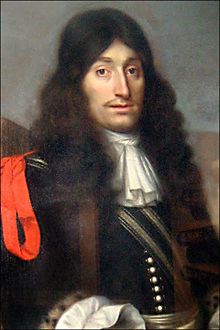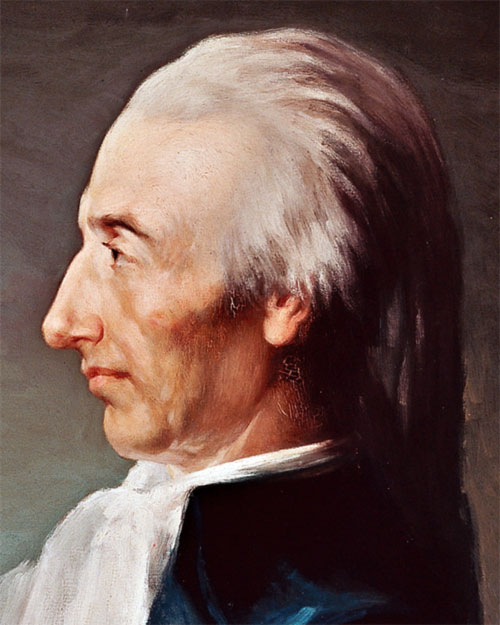Our Almanac reminds us that Columbus, Cabot, Vespucci, and Verrazzano weren’t the only Italians this nation ought to be thankful for.
On April 9th, 1682 Enrico Tonti and Frenchman Robert La Salle arrived at the Gulf of Mexico after traversing waterways from the Great Lakes and down the Mississippi. In the process, they claimed a huge area of North America, known as the Louisiana Territory, for King Louis XIV of France. That Territory would later be purchased by the new republic of the United States from another Italian – Napoleon Bonaparte – doubling the size of our nation.

History books still honor La Salle, but Tonti not so much. To add to the insult Tonti’s name is often rendered French as Henri de Tonty, much as Colombo is rendered Colón in Spanish. But both were Italian-born. Unlike Colombo’s northern roots, Tonti’s family came from south of Rome – Gaeta (gah-A-ta), a seaport then under Spanish-Neapolitan rule. Gaeta was also the birthplace of Giovani Caboto (and proudly my paternal roots). Enrico was the first of 19 children born to Isabelle di Lietto. (The Guinness record is 69 by a Russian woman in the 1700s!) Isabelle’s second son co-founded Detroit, MI. – talk about a proud mamma.
Tonti’s father was Governor of Gaeta but plotted against Spanish viceroy in Naples. His subversive agenda forced his family to relocate to France, where Enrico joined the French military. Sent to fight against the Spanish in Sicily, Enrico lost his left hand to a grenade. He replaced it with an iron prosthetic and acquired the moniker “Iron Hand”.
Even with this handicap, he later was teamed up with La Salle to verify that the Mississippi River reached the Gulf of Mexico and that neither the Spanish nor English had settlements on its west bank. Not only did they verify this, but they catalogued all the indigenous tribes along the way. Unfortunately, La Salle didn’t live long enough to exploit the new Territory, so Tonti took charge of French interests. Over the course of twenty years he organized a trade and defense alliance with the tribes and fended off English-Iroquois incursions. He died of Yellow Fever at age 55 serving the governor of New Orleans. Will there ever be an action movie about Iron Hand Tonti? He is thus honored by one state: Fur trader Henri de Tonty, the Father of Arkansas, founded the first European Settlement on the Arkansas River. In Illinois, he is observed on a Chicago “Discoverers” bridge marker and the Enrico Tonti Elementary School near Midway Airport.

April 9th also marks the death of Admiral Alessandro Malaspina in 1810. Another remarkable Italian who worked abroad. This time it was Spain that needed to fend off Russian advances south of Alaska in what is now British Columbia. Already a decorated officer in the Spanish Navy, Malaspina was sent off to circumnavigate the globe and to conduct scientific and geographic observations including the whole Pacific coast from Chile up to southern Alaska. His expedition mapped the contours and sea depths of that coast with precision. From there he visited all the Spanish colonies throughout the Pacific and returned to Spain after a five-year voyage.
Like Enrico Tonti’s father one hundred years earlier, Malaspina got the revolutionary bug. Both the American and French Revolutions were changing human affairs during his lifetime. Upon his return to Spain, Malaspina recommended that Spain free all its colonies and create a commonwealth. Suddenly, this valuable Italian became persona non grata for the Spanish government. He was court-martialed and imprisoned for six years. His 7-volume account of the expedition was suppressed and any that survived didn’t see the light of day for 100 years. Malaspina returned to Italy and died, like Tonti, at age 55.
His memory lives in the Malaspina Glacier (Alaska), In British Columbia: Malaspina Strait, Malaspina Peninsula, Malaspina Provincial Park, and Malaspina Research Center at Vancouver Island University. In New Zealand there’s a Malaspina Reach at Fiordland.
Tonti and Malaspina, like many Italic people, left their homeland to enrich other lands. -JLM

Recent Comments